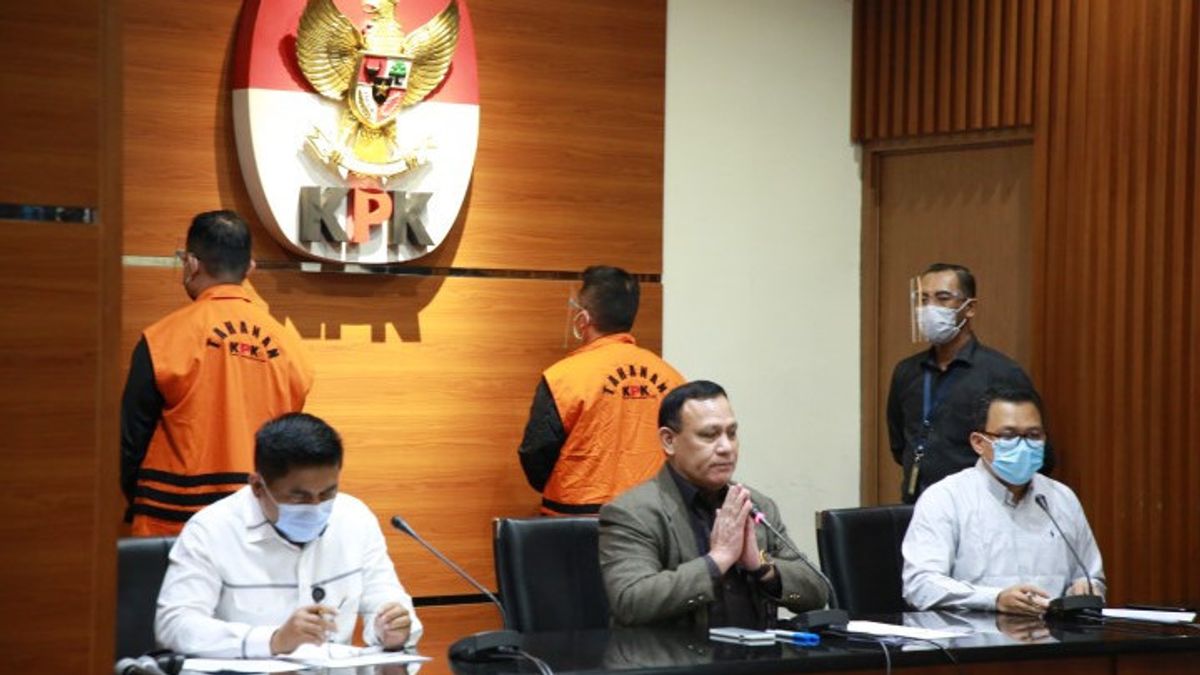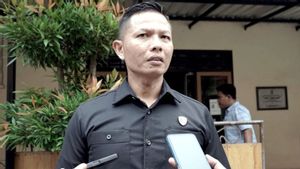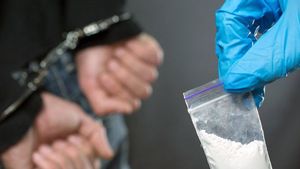JAKARTA - The Corruption Eradication Commission (KPK) has named Social Minister Juliari Peter Batubara as a suspect in a corruption case related to bribery for the provision of basic food social assistance for people affected by COVID-19. This PDI Perjuangan cadre is not the first Minister of Social Affairs to wear an orange vest.
In the past period, Jokowi also had to swallow the bitter pill when Idrus Marham, who was sitting in the same position, was named a KPK bribery suspect. It's just that, at that time, Idrus did not commit corruption related to social assistance but he received bribes from businessman Johanes Kotjo in connection with the Riau-1 PLTU project.
Juliari's determination as a suspect shocked the public. Moreover, previously, the anti-gas commission had just appointed another minister in the Advanced Indonesia Cabinet, namely the Minister of Maritime Affairs and Fisheries Edhy Prabowo.
The journey of the Juliari case began with a hand arrest operation (OTT) which started with public information on Friday, December 4. KPK chairman Firli Bahuri said the information stated that a number of state administrators had allegedly received money from Ardian I. M (AIM) and Hary Sidabuke (HS) as a private party to two Commitment Making Officials (PPK), namely Matheus Joko Santoso (MJS). ), Adi Wahyono (AW), and Minister of Social Affairs Juliari Batubara given through his confidants including a Secretary of the Ministry of Social Affairs, namely Shelvy N.
Furthermore, after silent operations were carried out in several locations in Jakarta on Saturday, December 5, the KPK named five suspects in this case, including Juliari.
"The KPK has named five suspects. As recipients of JPB (Juliari Peter Batubara), MJS, and AW. The givers are AIM and HS," said KPK Chairman Firli Bahuri in a press conference for the determination of suspects, Sunday, December 6.
The former Deputy for Corruption Eradication of the KPK explained that Juliari as Minister of Social Affairs allegedly appointed MJS and AW as Commitment Making Officials who then directly appointed partners who would fill the social assistance procurement project at the Ministry of Social Affairs worth Rp.5.9 trillion with a total of 272 contracts and carried out in two periods.
In the first period, said Firli, Juliari allegedly received a fee of IDR 8.2 billion through AW from a total of IDR 12 billion, which came from an agreement to pay IDR 10,000 by project partners to the Ministry of Social Affairs. This gift was managed by his confidants named Eko and Shelvy to pay for Minister Juliari's personal needs.
Next, in the second period of implementing the social assistance package, Juliari again received Rp.8.8 billion from the fee money collected from October to December. Just like the previous period, these billions of money will be used to meet their needs.
Although he was named a suspect, however, Juliari was not shown as a suspect in an orange vest. He just arrived at the Red and White KPK Building, Jalan Kuningan Persada, South Jakarta on Sunday, December 6 at around 02.50 WIB and was immediately examined intensively before finally being detained at the KPK branch detention center, ACLC building Kavling C1 and then transferred to the KPK detention center Pomdam Jaya Guntur branch. .
After Juliari wore an orange vest and was named a suspect, PDI Perjuangan as the party from Juliari issued a statement. PDIP Secretary General Hasto Kristiyanto said his party would respect the entire legal process carried out by the KPK against its cadres.
"The party respects all ongoing legal processes. Law is a way of civilization to uphold justice and truth. Everyone is obliged to cooperate with the efforts made by the KPK," said Hasto.
"We always insist that power is for the people. The party prohibits all forms of abuse of power, including corruption," he added.
Later in the day, President Jokowi through a video uploaded to the YouTube account of the Presidential Secretariat said he would not protect anyone involved in corruption, including his ministers. Moreover, he had reminded his ministers from the start not to commit corruption.
In addition, he is sure that the KPK will work professionally, including in investigating the alleged bribery that ensnared Juliari.
"We all believe that the KPK works in a transparent, open manner, in a good, professional manner and the government will continue to consistently support efforts to prevent and eradicate corruption," Jokowi said as quoted in his statement in the video.
Furthermore, Jokowi appointed Coordinating Minister (Menko) for Human Development and Culture (PMK) Muhadjir Effendy as Minister of Social Affairs Ad Interim to replace Juliari.
"Later I will appoint Menko PMK to carry out the duties of the Minister of Social Affairs," he said.
The possibility of the Minister of Social Affairs being sentenced to deathThe former spokesman for the KPK, Febri Diansyah, responded to the bribery case that ensnared Juliari via his Twitter account. According to him, the decision of the anti-graft commission to apply the bribery article against the perpetrators was correct and the threat of punishment is also not a joke, namely life. This is at the same time responding to the statement by KPK Chairman Firli Bahuri who once said that anyone who commits corruption in the midst of the COVID-19 pandemic can be sentenced to death.
In this case, as a recipient, Juliari is suspected of violating Article 12 letter a or b or Article 11 of Law Number 31 of 1999 as amended by Law Number 20 of 2001 concerning Eradication of Corruption Crime Jo Article 55 paragraph (1) to 1 KUHP.
"The bribery articles and 12i used by the KPK in the OTT of the Ministry of Social Affairs yesterday are quite precise. The maximum threat is lifetime," said Febri, as quoted by VOI.
He did not deny that the law regulates the threat of death penalty for the perpetrators of corruption through Article 2 Paragraph 2 of Law Number 31 Year 1999 concerning Corruption Crimes.
"But only corruption is a loss to the state (Article 2). Meanwhile, yesterday's OTT was bribery for social assistance for COVID-19. Types of corruption and articles are different," he said.
This anti-corruption activist believes that the death penalty is not something easy to apply to corruptors. In addition, he also considers that the death sentence conveyed is only an insignificant slogan to show a serious impression of eradicating corruption.
"For a long time it has been reminded that the KPK does not need too many slogans. Just work concretely. Support the work of KPK employees, so gradually the credibility of the KPK will increase again. Trust grows from consistency, keep working. Prove it with performance," said Febri.
He explained that the slogan for the death penalty for corruptors often occurs in two conditions, namely, first, only in the form of a slogan to show commitment to eradicating corruption, even though so far no perpetrator has served this kind of sentence. Second, as a form of anger towards corrupt officials.
In addition, Febri actually questioned which country had succeeded in eradicating corruption with the death penalty for the perpetrators. "On the eve of the world anti-corruption day, try to find out which countries have succeeded in eradicating corruption with the death penalty," he said.
Meanwhile, a criminal law expert from Trisakti University Abdul Fickar Hadjar assessed that the KPK might apply Article 2 Paragraph 2 of Law Number 31 Year 1999 concerning Corruption. Provided, the anti-graft commission must be able to prove the state's financial loss in the case that ensnared Juliari.
"For example, deliberately committing an act against the law by making a decree for the appointment of a certain company by entrusting a certain amount of price for each social assistance unit, thus detrimental to state finances. With this construction the charges will not only be bribery corruption but also corruption because it is detrimental to state finances," he said. Fickar.
So, to ensure the fulfillment of this element, the KPK must step on the gas, especially pursuing a number of evidences that can show state losses. Moreover, the application of the maximum penalty in Article 2 Paragraph 2 concerning Corruption or the death penalty is deemed necessary in the midst of the COVID-19 pandemic disaster. Fickar assessed that this punishment could be used as a deterrent effect so that this kind of incident would no longer occur.
"The application of Article 2 Paragraph 2 of Corruption, the maximum threat of death penalty if carried out in certain circumstances includes national natural disasters including the COVID-19 pandemic disaster. Therefore, for deterrence, the maximum penalty should be applied for acts of corruption committed during this pandemic. , "he concluded.
The English, Chinese, Japanese, Arabic, and French versions are automatically generated by the AI. So there may still be inaccuracies in translating, please always see Indonesian as our main language. (system supported by DigitalSiber.id)









